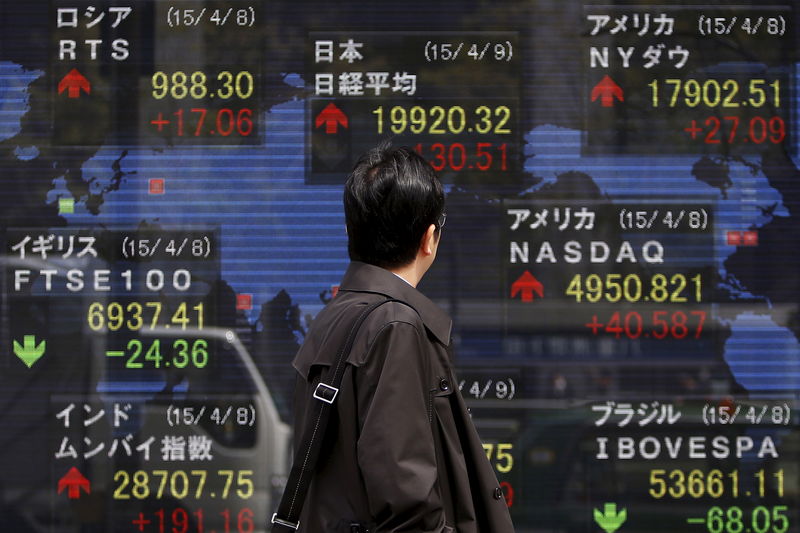This post was originally published on this site
https://i-invdn-com.akamaized.net/news/LYNXMPEB380HB_M.jpg
Investing.com – Asian stock markets were mostly up on Wednesday, with investors looking to the U.S. Federal Reserve, scheduled to announce its rate decision later in the day, for clues to the U.S. economy’s recovery from the COVID-19 virus.
The Fed is widely expected to continue its dovish approach, extending almost all its lending programs by three months, to the end of 2020, with the battle against COVID-19 far from over in the U.S. as well as globally. The number of global COVID-19 cases topped 16.6 million as of July 29, according to Johns Hopkins University data.
“There’s enough stimulus and support in the market from a monetary policy perspective, but also from fiscal, and that keeps a nice floor under the market,” Amanda Agati, chief investment strategist for PNC Financial Services Group (NYSE:PNC), told Bloomberg.
“But we also think it’s going to be very difficult to make a lot of forward progress in this environment,” she warned.
Japan’s Nikkei 225 was down 0.89% by 11:06 PM ET (4:06 AM GMT) while South Korea’s KOSPI gained 0.33%.
Down Under, the ASX 200 fell 0.13%. The Australian Bureau of Statistics said earlier in the day that the consumer price index fell 1.9% quarter-on-quarter, and 0.3% year-on-year, in the second quarter.
Hong Kong’s Hang Seng Index was up 0.27%. New, unprecedented social distancing measures came into force on Wednesday as the city battles a third wave of COVID-19 cases. Chief Executive Carrie Lam warned on Tuesday the city is on the brink of a large-scale outbreak, with the city recording 106 new cases on Tuesday.
China’s Shanghai Composite gained 1.51% while the Shenzhen Component jumped 2.06%.
Meanwhile, Republicans and Democrats are scrambling to pass the latest stimulus measures before Friday, when some earlier measures are due to expire. But with some Republicans, including U.S President Trump, opposing the Republican’s proposed $1 trillion measure, investors will be looking to see if both parties can come to a consensus before the deadline.

